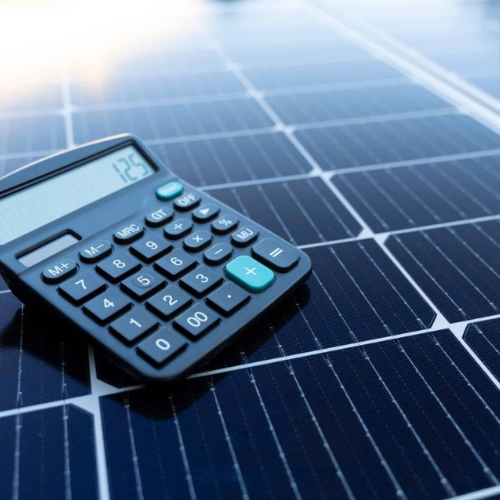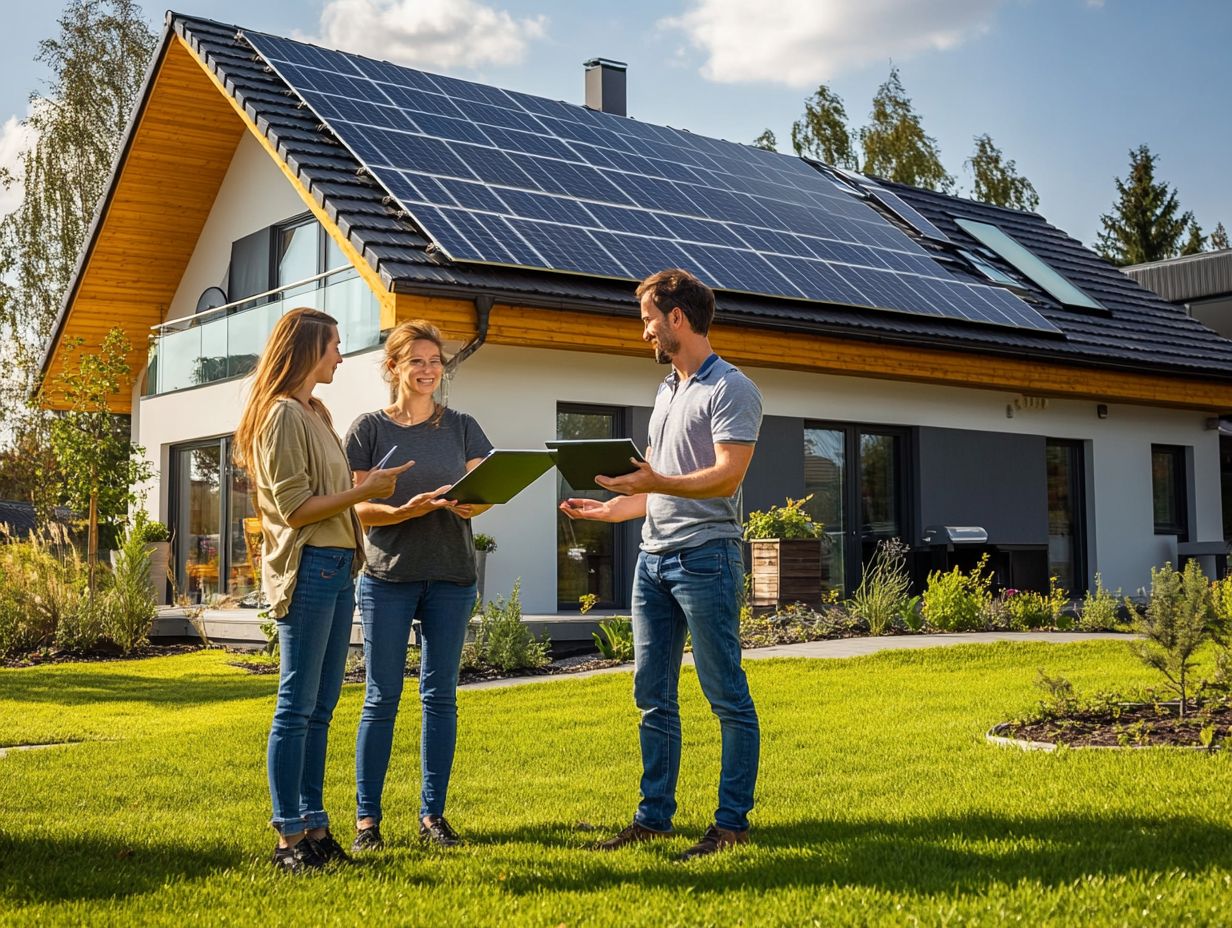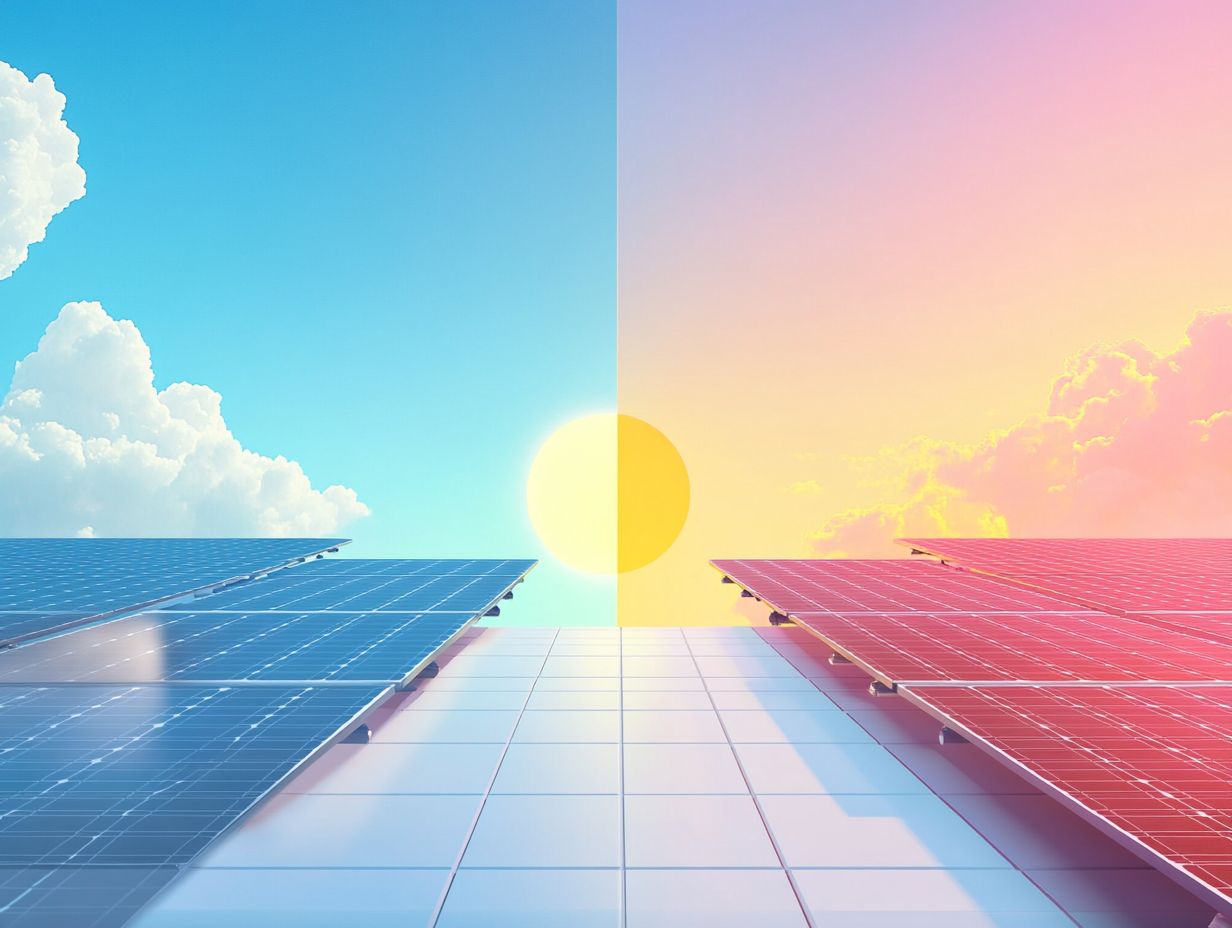Contents
- 1 Key Benefits of Solar Energy for Homes
- 2 Essential Factors to Consider Before Going Solar
- 3 How to Determine if Solar is Right for You
- 4 Next Steps for Going Solar
- 5 Frequently Asked Questions
- 5.1 What is a solar checklist for determining if solar is right for my home?
- 5.2 What location factors should be considered when determining if solar, including roof suitability and sunlight exposure, is right for my home?
- 5.3 How much energy usage and consumption is typically required for solar to be a feasible option for my home?
- 5.4 What are some potential cost considerations and financing options for installing solar on my home?
- 5.5 Are there any tax incentives, government rebates, or solar incentives available for installing solar on my home?
- 5.6 What are the benefits of installing solar energy systems, such as energy independence and long-term savings?
Understanding Solar Energy
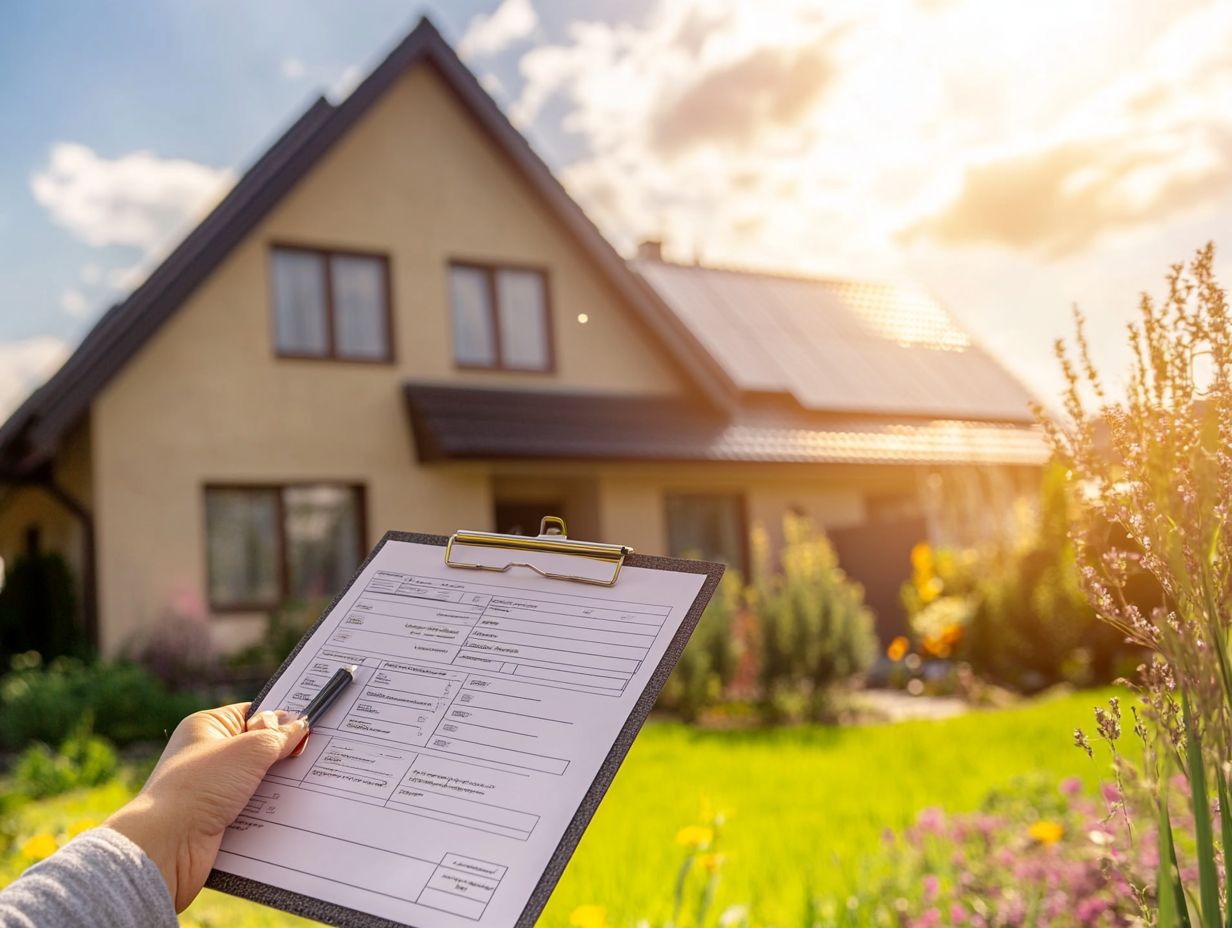
Solar energy is a fantastic form of renewable energy that you can harness from the sun’s rays. By using advanced photovoltaic technology and solar technology, you can convert sunlight into electricity.
This clean and sustainable energy source is becoming increasingly important as we work to combat climate change and reduce our reliance on fossil fuels for energy security.
It all starts with solar panels, which are made up of numerous solar cells that capture sunlight and turn it into usable electrical energy. These cells rely on semiconductors, usually silicon, to kick off the photovoltaic effect and generate direct current electricity.
Then, inverters come into play, converting that direct current into alternating current. This way, you can use the electricity in your home or business or even send it back to the grid.
By adopting solar energy, you’re not just powering your daily life; you’re also significantly lowering greenhouse gas emissions, promoting energy independence, and helping to pave the way for a more sustainable and eco-friendly economy with reduced environmental impact.
Green, M. A., Dunlop, E. D., Hohl-Ebinger, J., Yoshita, M., Kopidakis, N., & Hao, X. (2020). Solar cell efficiency tables (version 56). Progress in Photovoltaics: Research and Applications, 28(7), 629-638. Link
Key Benefits of Solar Energy for Homes
When you think about adding solar energy to your home, you’ll find a bunch of benefits that go way beyond just saving on your energy bills, including increased home value.
By tapping into solar power, you can enjoy lower utility costs, boost your property value, and do your part for the environment with sustainable energy solutions, such as home energy efficiency upgrades.
Environmental and Economic Benefits of Solar Energy
The environmental and financial benefits of solar energy are pretty amazing. When you install solar panels, you not only save a significant amount on your energy bills, but you also reduce the carbon footprint of your home.
With federal solar tax credits and a bunch of incentives out there, going solar isn’t just a green choice; it’s also a smart way to save some cash through various solar incentives.
Many homeowners discover that by looking at their energy bills, they can save hundreds, if not thousands, of dollars over the life of their solar system, thus improving their return on investment.
You can take those savings and put them toward other important expenses, which gives you more financial flexibility.
Embracing solar technology is a game-changer for promoting energy independence, cutting down reliance on traditional energy sources, and shielding yourself from those pesky fluctuating energy prices through sustainable investment.
This double whammy of benefits really shows how solar energy can transform your lifestyle, pushing you toward sustainable living while delivering real financial perks from long-term savings and government incentives, such as tax incentives.
Essential Factors to Consider Before Going Solar
Before you jump into installing solar energy, it’s really important to take a moment to evaluate a few factors that will help you figure out if your solar project is feasible, such as conducting an energy audit.
You’ll want to check if your roof is suitable for solar panels and conduct an energy audit to get a clear picture of your home’s energy consumption and potential energy savings.
Trust me, doing this thorough prep work is key to making the most out of your investment in solar energy.
Assessing Your Home’s Suitability
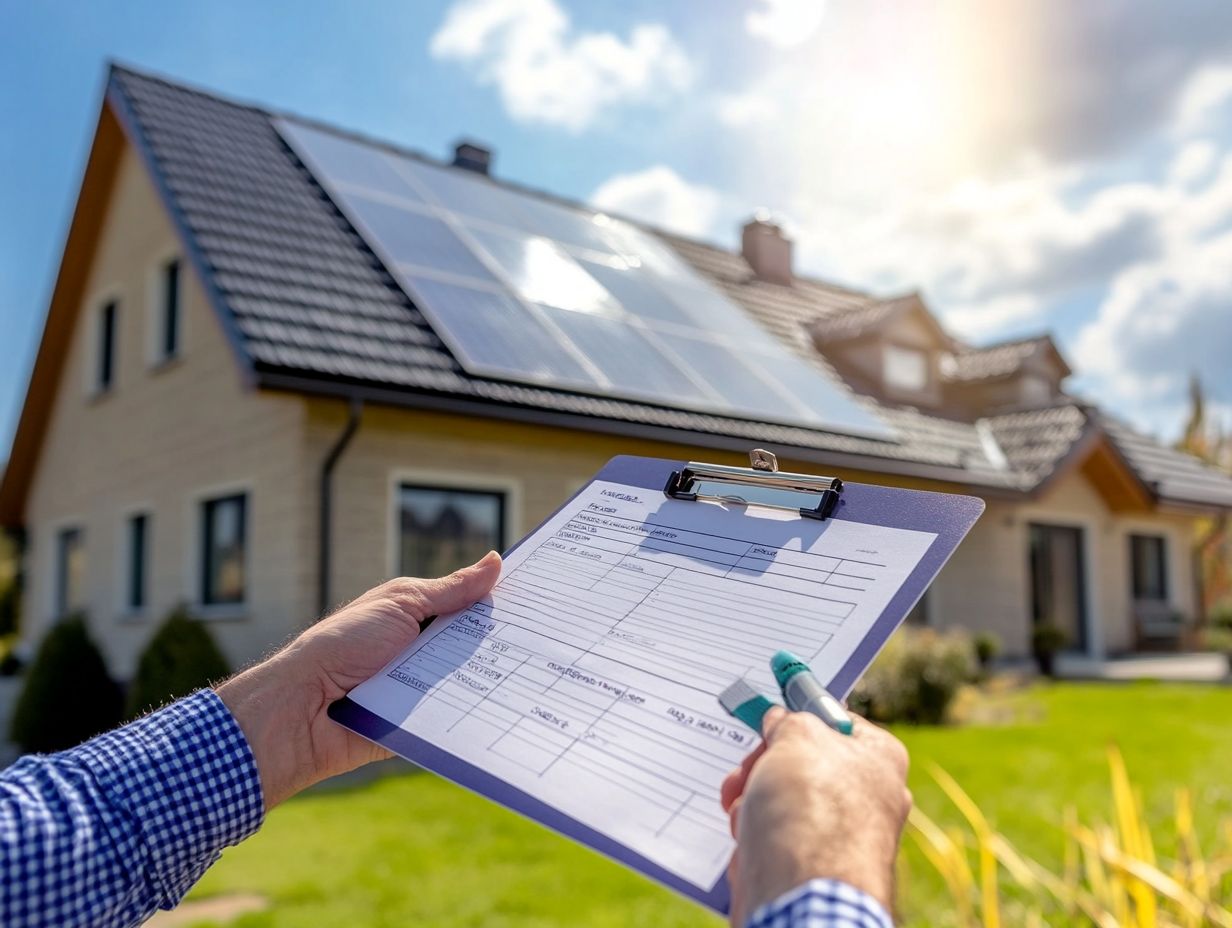
Evaluating your home for solar energy means taking a good look at factors like your roof’s suitability, sunlight exposure, and how much sunlight it gets. This assessment is crucial for ensuring optimal performance of your solar energy system.
In terms of your roof, its orientation is super important. Ideally, a south-facing roof is the star of the show, capturing the most sunlight throughout the day and making it an excellent spot for solar panels, thereby optimizing energy output.
You also need to check for any potential shading from nearby trees, buildings, or other obstacles because even a little shade can seriously cramp your solar energy system’s style, which is why a shading analysis is crucial.
Don’t forget to think about the tilt and material of your roof too, as these factors can impact how effectively you capture energy.
By thoroughly assessing these elements, you can assess your energy needs and contribute to a more sustainable future by relying more on renewable energy and improving your energy independence.
Costs and Savings
Understanding the costs and potential savings linked to solar energy is key for you to make an informed decision about your investment and ensure you get the best return on investment.
You need to consider factors like the cost of solar installation, the financing options available to you, and the expected maintenance costs—all of which play a crucial role in figuring out your solar return on investment and determining your payback period.
By carefully evaluating these components, you can discover the financial perks that solar energy can offer you.
For example, it’s important to know about different financing methods, like leases and power purchase agreements (PPAs), since they can really impact your upfront costs and monthly payments, as well as your overall solar financing strategy.
Be sure to review your energy bills before and after installation to accurately calculate potential savings over time.
As energy prices go up, the long-term savings from this kind of investment can be significant, making it a smart choice for anyone looking for sustainable energy solutions and energy efficiency upgrades.
How to Determine if Solar is Right for You
Figuring out if solar energy is the right fit for you means taking a good look at your energy needs, finances, and the latest trends in the solar market.
By doing an energy audit and exploring your solar options, you’ll be able to make an informed decision that really matches your lifestyle and sustainability goals, contributing to a more eco-friendly and energy-efficient home.
Using a Checklist
Creating a checklist for your solar installation can really simplify the whole process and make sure you don’t miss any crucial steps, from calculating your initial energy savings to wrapping up the final planning stages of your solar project, including energy transition and energy empowerment.
This methodical approach can help you transition to solar energy seamlessly.
To make the most of your experience, it’s a good idea to include detailed evaluations like site assessments, local regulations, and equipment choices for optimal energy output.
Checking the roof conditions and orientation will help you maximize efficiency, and don’t forget to research any available incentives to boost your project’s sustainability.
Drafting a timeline for each phase of the project can be a game-changer for project management, ensuring that your installations stay on budget and meet your energy goals, supporting your journey towards sustainable living and clean energy.
By incorporating these elements into your checklist, you’ll set yourself up for a more successful solar installation and make that shift to renewable energy solutions a whole lot smoother, enhancing your home improvement efforts.
Next Steps for Going Solar
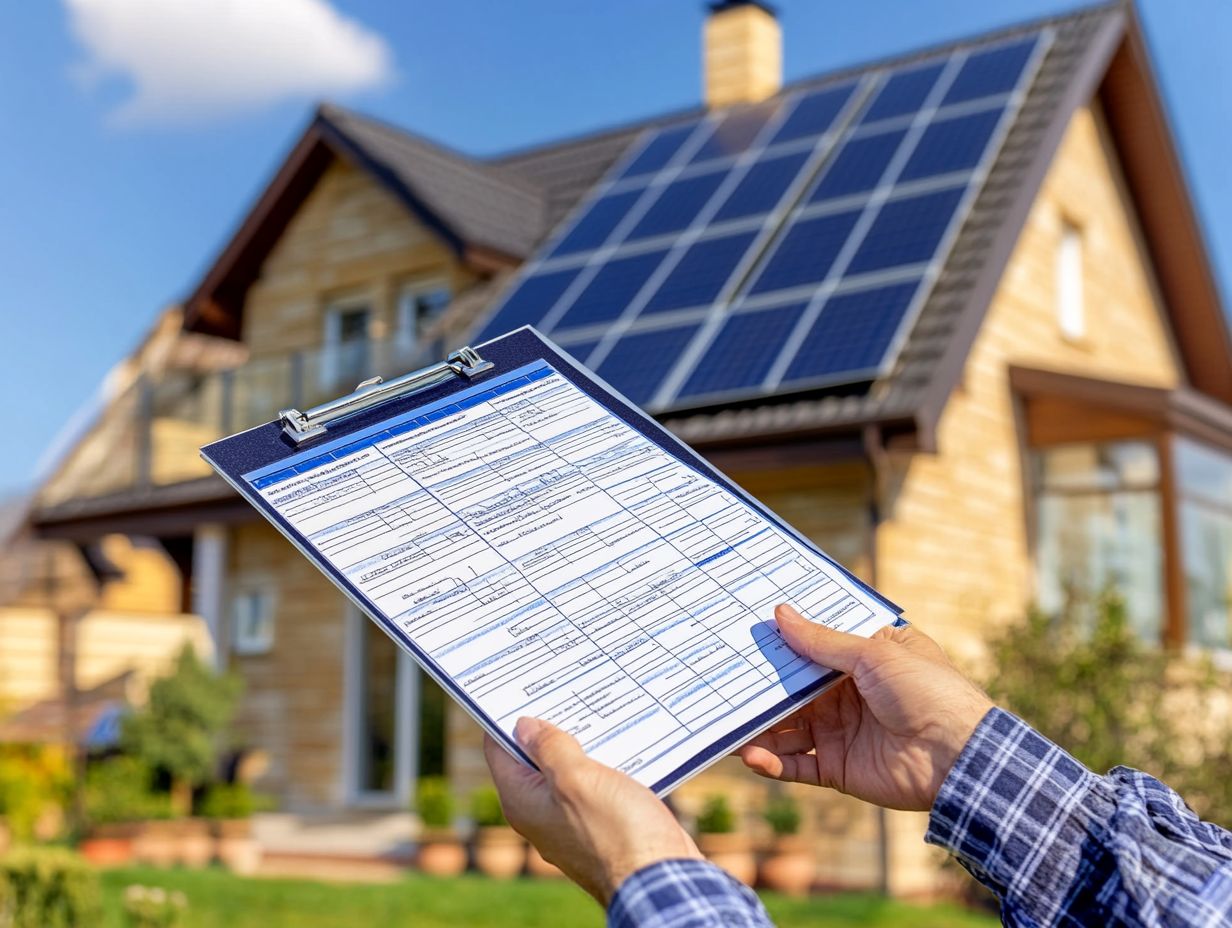
Once you’ve decided to go solar, the next steps are all about finding a reputable solar installer and understanding the installation process.
This is also a great time for you to dive deeper into solar energy education and to further educate yourself about solar energy and explore available solar financing options that can help make your investment easier, maximizing your energy savings.
Finding a Reputable Solar Installer
Finding a reputable solar installer is crucial for making sure your solar project goes off without a hitch, ensuring quality assurance.
This means doing a little homework on installation companies, reviewing solar contracts, and keeping up with the latest trends in the solar market and solar technology.
Customer reviews are gold when it comes to gaining insights into the reliability and quality of service provided by different installers, helping you choose the right solar company.
To navigate this process smoothly, you’ll want to compare credentials and certifications among the potential solar providers since these qualifications can seriously impact the quality of the work you’ll receive from your solar installation.
Engaging with past customers through testimonials or direct chats can give you a real sense of their experiences and how satisfied they were, providing valuable insights for your decision-making.
Plus, understanding the details of solar contracts is key; make sure to look closely at warranties, service agreements, and the overall financial commitment involved, including any potential energy credits.
By focusing on these criteria, you can find a trustworthy installer who not only delivers top-notch workmanship but also shares your vision for sustainability and energy transformation.
The Solar Installation Process Explained
Understanding the installation process for solar energy systems is crucial for managing your expectations and timelines, ensuring a smooth energy transition.
Typically, this process involves a site assessment, permitting, installation, and solar monitoring to make sure everything runs smoothly once the system is up and running, enhancing your energy strategy.
- You’ll start with a thorough site assessment, where experts will check out key factors like roof orientation, shading, and structural integrity, ensuring optimal solar efficiency.
- Next, you’ll need to get the necessary permits from local authorities to ensure you’re playing by the rules and complying with energy policy.
- Once everything’s approved, the installation kicks off, and that’s when the solar panels, inverters, and electrical connections get set up, ensuring electrical system compatibility.
- After the installation, the system will go through testing to confirm that everything is working as it should, ensuring quality assurance and optimal power generation.
- Then, solar monitoring services will be set up, allowing you to track your energy production and consumption in real-time, utilizing advanced energy monitoring systems.
This way, you can ensure that your solar energy system is performing at its best, efficiently and reliably, contributing to your long-term energy security.
Understanding each step of the installation process is essential for a successful solar experience.
National Renewable Energy Laboratory (NREL). (2015). Best Practices in PV System Installation. Link
Frequently Asked Questions
What is a solar checklist for determining if solar is right for my home?
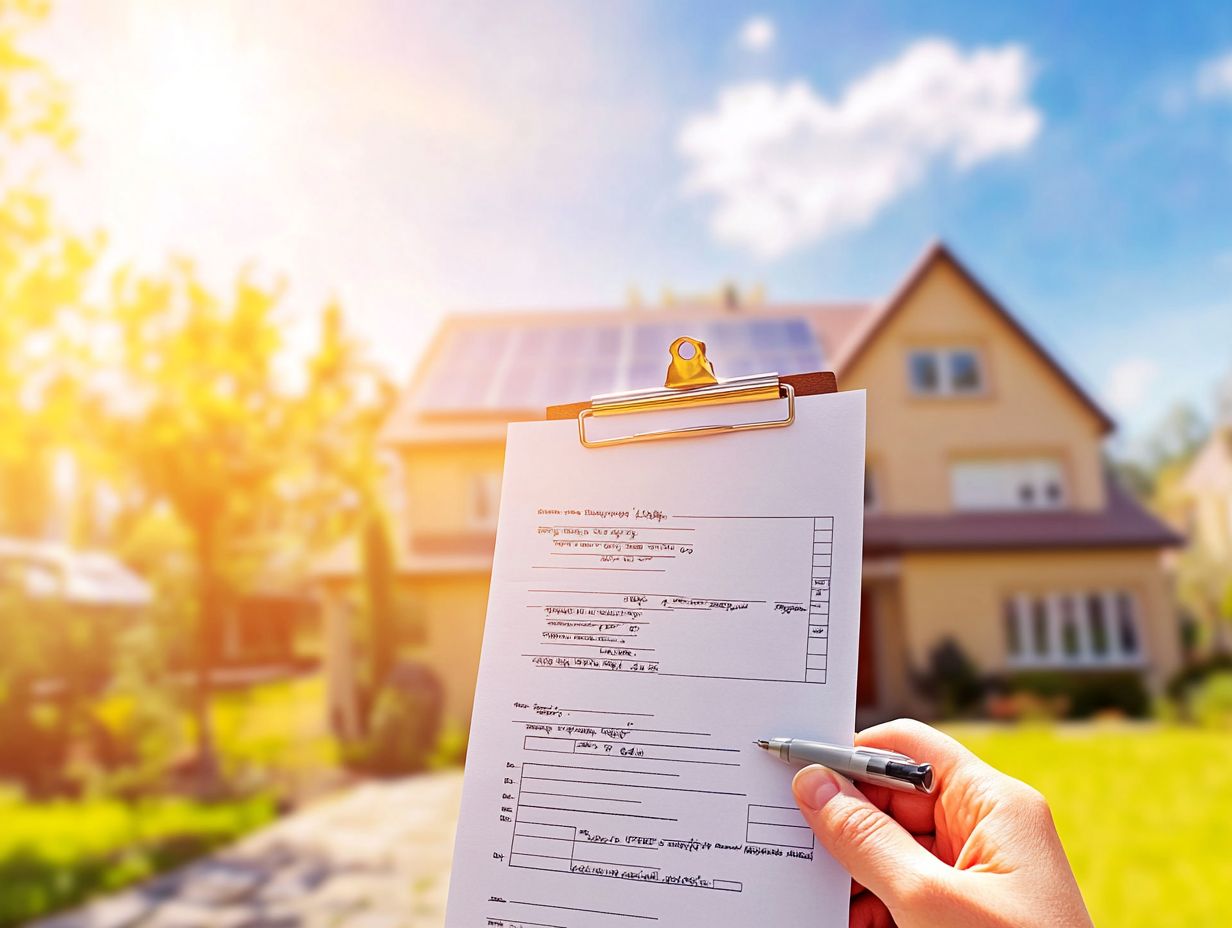
A solar checklist is a critical resource for homeowners to assess various factors such as home assessment, energy consumption, roof suitability, system sizing, local regulations, and financing options to determine the feasibility and benefits of solar installation for their specific situation.
A solar checklist typically includes a series of questions and considerations to help determine if solar energy, particularly solar panels and photovoltaic technology, is a viable option for your home.
It may cover factors such as location, energy usage, cost, available incentives, and the potential return on investment.
What location factors should be considered when determining if solar, including roof suitability and sunlight exposure, is right for my home?
The amount of sunlight your home receives, local weather patterns, and any potential shading from trees or buildings should be taken into account when considering solar energy.
A comprehensive shading analysis is crucial, and it can be conducted by evaluating the shadow patterns throughout the day. Additionally, some areas may have specific regulations or zoning laws that could impact the installation process of solar panels.
How much energy usage and consumption is typically required for solar to be a feasible option for my home?
There is no set amount of energy usage required for solar to be a viable option, as it will depend on various factors such as your location, energy needs, and available incentives.
Conducting an energy audit can help assess your energy consumption. However, if your home has a high energy demand or you are looking to offset a significant portion of your energy bills, solar power systems may be a beneficial option for you.
What are some potential cost considerations and financing options for installing solar on my home?
The cost of solar installation will vary depending on factors such as the size of your home, the type of panels and equipment used, your location, and potential maintenance costs. Some key cost factors to consider include:
- Size of the solar system needed
- Type of solar panels
- Installation costs
- Potential incentives or rebates
- Maintenance expenses
It is important to research and compare solar quotes from reputable solar companies to determine the most cost-effective option for your specific needs. Considering solar financing and home energy efficiency can also reduce overall expenses.
Are there any tax incentives, government rebates, or solar incentives available for installing solar on my home?
Yes, there are often tax incentives, government rebates, and residential incentives available for homeowners who install solar energy systems.
These incentives can help offset the initial cost of installation and make solar a more financially viable option for many households.
We recommend researching and consulting with a tax professional to fully understand the available federal incentives and energy credits in your area.
What are the benefits of installing solar energy systems, such as energy independence and long-term savings?
Along with potentially saving money on your energy bills, solar energy can also help reduce your carbon footprint and contribute to a more sustainable future through clean energy and renewable resources.
It may also increase the value of your home and provide a reliable source of energy in the event of power outages, promoting energy security and climate resilience.
Overall, the benefits of solar energy contribute to a greener planet and financial savings for homeowners.


